Early voting is biggest expansion of voting rights in recent South Carolina history
EDITOR'S NOTE: This page is part of a comprehensive guide to voting rights across the U.S. and in Puerto Rico.
While other states were passing more restrictive voting laws, South Carolina took a big step forward this year by enacting early voting.
Whether voting early produces a higher overall turnout remains to be seen. In 2020, the statewide general election turnout was 72%; in 2016, it was 68%; in 2012 it was 69%.
"It gives everybody the opportunity to vote," said Curt Smith, chairman of the Spartanburg County Republican Party. "If there's a problem voting on election day, you've got two weeks to get there now. Whether it increases turnout, we hope so, but we don't know."
Recent history of voting rights in South Carolina
The Voting Rights Act of 1965 had an almost immediate impact in South Carolina. In 1964, 38.7 percent of voting-age African Americans were registered. Four years later that number climbed to 50.8 percent.
The Act required states with a historical pattern of suppressing voting rights based on race to submit changes in their election laws to the U.S. Justice Department for approval (or “preclearance”).
South Carolina challenged the law’s constitutionality, arguing in South Carolina v. Katzenbach, that Congress could not violate states' rights. In 1966, the U.S. Supreme Court rejected South Carolina's challenge to the preclearance provisions.
In 2013, the U.S. Supreme Court struck down the preclearance requirement in its Shelby County v. Holder decision. The Court held that Congress cannot subject a state to preclearance based simply on past discrimination.
Soon after, South Carolina enacted a photo ID law, requiring proof of identity such as a driver’s license. The new law allows voters to get a photo ID at their local election office and to vote a provisional ballot if they have a reasonable excuse why they could not get such an ID.
In May 2022, the South Carolina ACLU announced an agreement with the state House of Representatives to amend redistricting maps to restore Black voters’ opportunity to elect the candidates of their choice in Orangeburg, Richland, Kershaw, Dillon and Horry counties.
In May 2022, South Carolina expanded voting by enacting a two-week, early in-person voting period. (SC
Turnout still the key in South Carolina
Voting rights advocate Charles Mann of the Spartanburg Local Redistricting Advisory Committee said until voter distrust of candidates and elections changes, early voting won't make much of a difference.
"It is a fact that voters are not voting," Mann said. "When voters don't see candidates of their liking, they don't vote."
South Carolina has 3.31 million registered voters who don't identify by party. They are free to vote in any party's primary.
In 2020, state lawmakers got a glimpse of how popular early voting could be as 1,333,972 voters cast early ballots. More than 52% of the overall statewide turnout came from early voting because COVID-19 concern was added as an excuse to vote early in-person.
By comparison, in 2016, 502,819 people, or 23% of the electorate, voted early when voters had to provide excuses why they couldn't vote on election day..
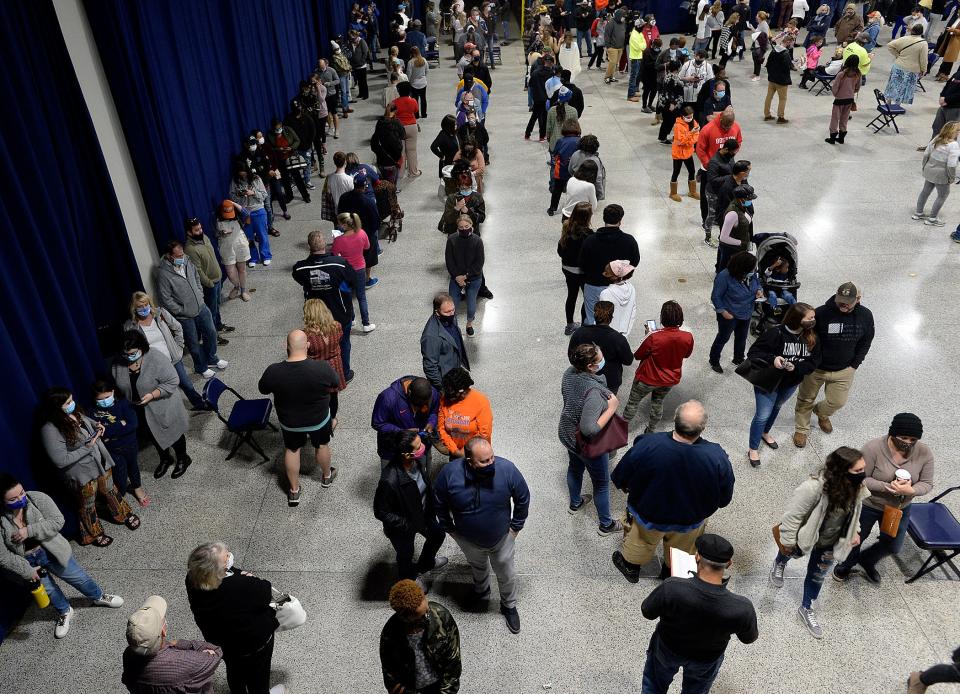
"Races are being won with a couple hundred votes – big ones," said Kathryn Harvey, chairwoman of the Spartanburg County Democratic Party. "It impacts our communities of color, our rural communities, and quite frankly everyone who isn't informed by the rushed and low-impact communication being disseminated."
The biggest expansion of voting rights in recent years came May 13, 2022, when Gov. Henry McMaster signed into law legislation that allows voters to cast ballots without excuses during a two-week early voting period. Republicans and Democrats applauded.
"I think South Carolina took a positive step in providing voters a two-week early vote option," said Trav Robertson, chairman of the S.C. Democratic Party. "This is quite contrary to other states in our region."
The new law also makes voter fraud a felony and increases fines and jail time for those who try to vote under a false name or vote more than once.
It also requires state-run audits after an election, and counties to remove inactive voters from their rolls.
Lynn Teague, vice president of issues and advocacy with the League of Women Voters of South Carolina, said adding required audits to the bill probably wasn't necessary.
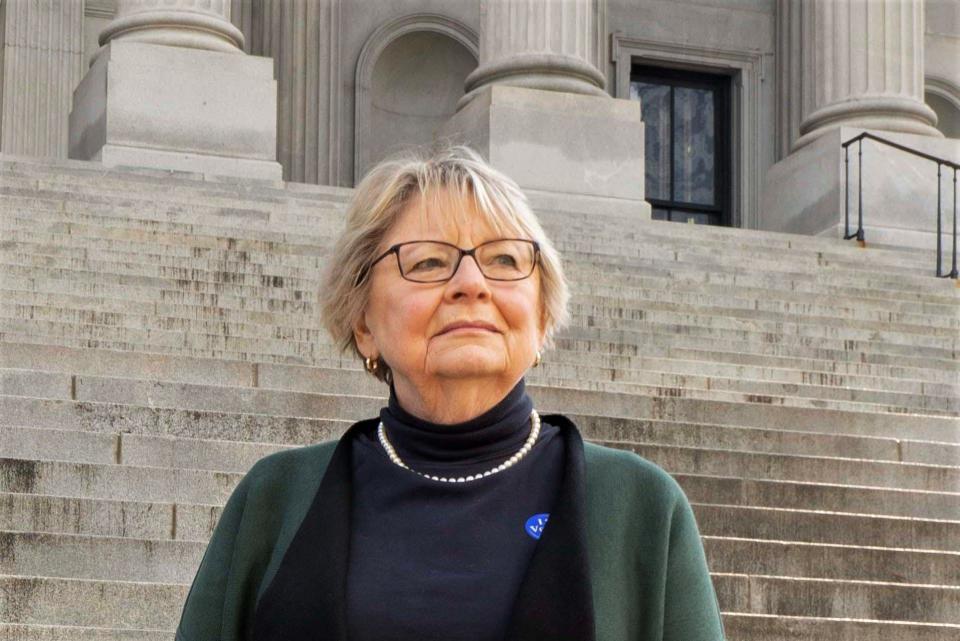
"The League does not believe there's been widespread fraud," she said. "But we do believe it's very important to reassure voters (via audits) so they have confidence their votes are accurately counted and democracy is working."
According to the S.C. State Law Enforcement Division, there were seven reports of suspected election fraud since June 1, 2022.
In the first primary election with early, no-excuse voting on June 14, 100,450 voted early statewide. Leading the way were Horry County, 11,618 early votes; Richland County, 9,346; and Charleston County, 6,464. In the Upstate, Greenville County had 3,898 early votes, followed by Anderson County, 2,646; and Spartanburg County, 2,328.
"I think the turnout was as expected," said Adam Hammons, Spartanburg County's elections chief. "I think it will only grow in future elections as voters get more familiar with it."
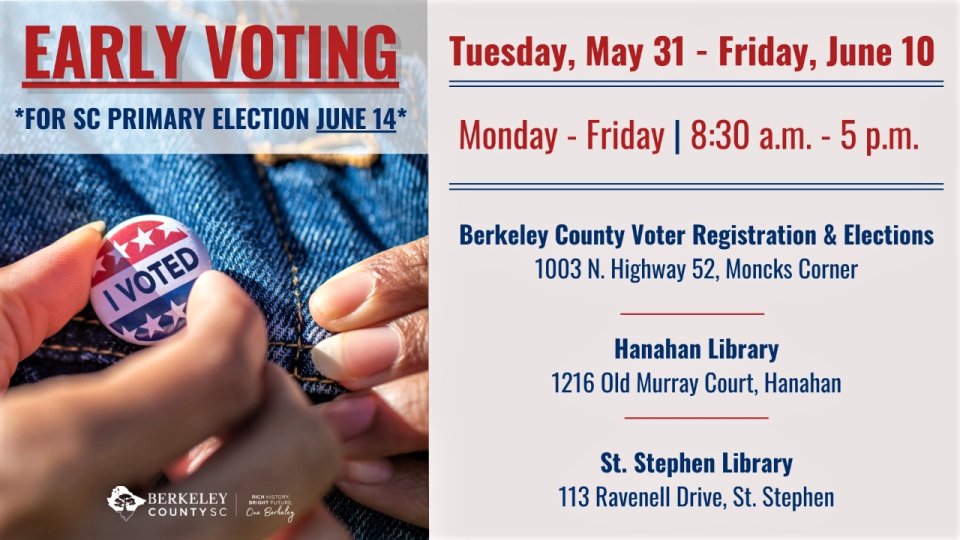
As South Carolina was expanding voting, other states were adding more barriers to voting – "impacting voters of color, women, people with low incomes and people with disabilities," according to Matletha Bennette, senior staff attorney for voting rights with the Southern Poverty Law Center.
Florida Senate Bill 524, signed into law in April by Gov. Ron DeSantis, creates an office to investigate allegations of voter fraud; makes ballot harvesting a third-degree felony; restricts ballot drop boxes and adds ID requirements for mail-in ballots.
"Floridan's anti-voter laws create impediments to high turnout and to voters trying to make their voices heard," Bennette said. "Our goal is to create a system where all voters can easily cast a ballot and have an equal voice in their community."
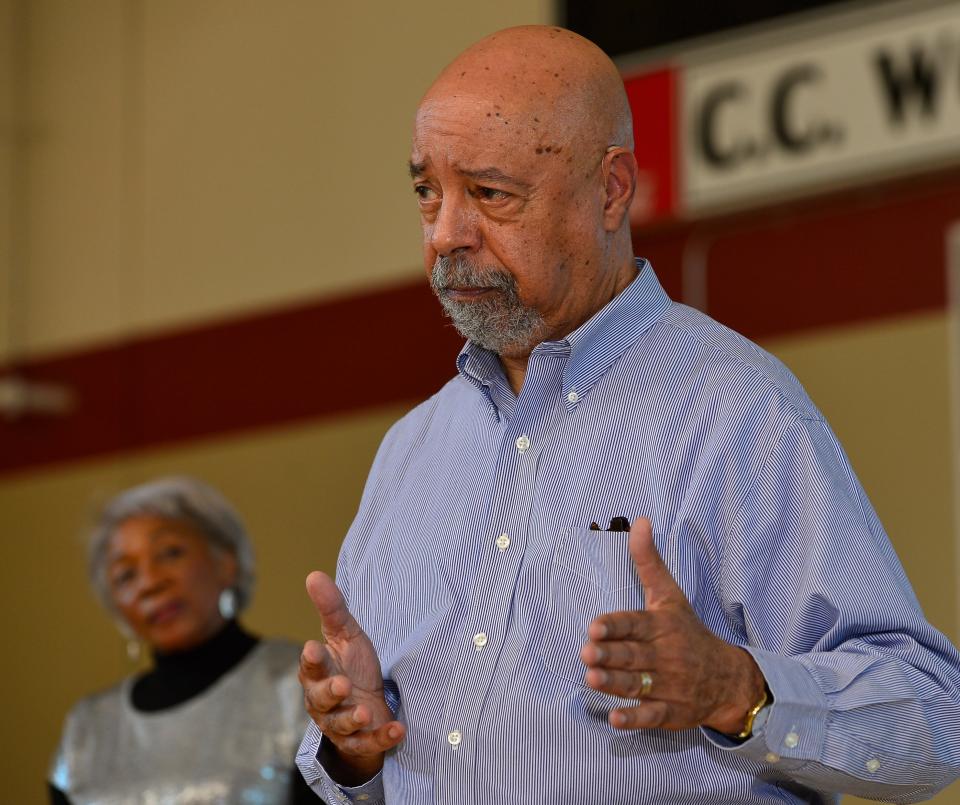
To boost turnout, Mann said another big step would be to dispel the myth that widespread voter fraud exists.
"When politicians continually say there is fraud in the electoral process, people lose confidence in the process and don't show up and don't participate," Mann said.
Rick Beltram, former chairman of the Spartanburg County Republican Party, agreed.
"Our voting in South Carolina is pretty tight," Beltram said. "I don't see any widespread fraud."
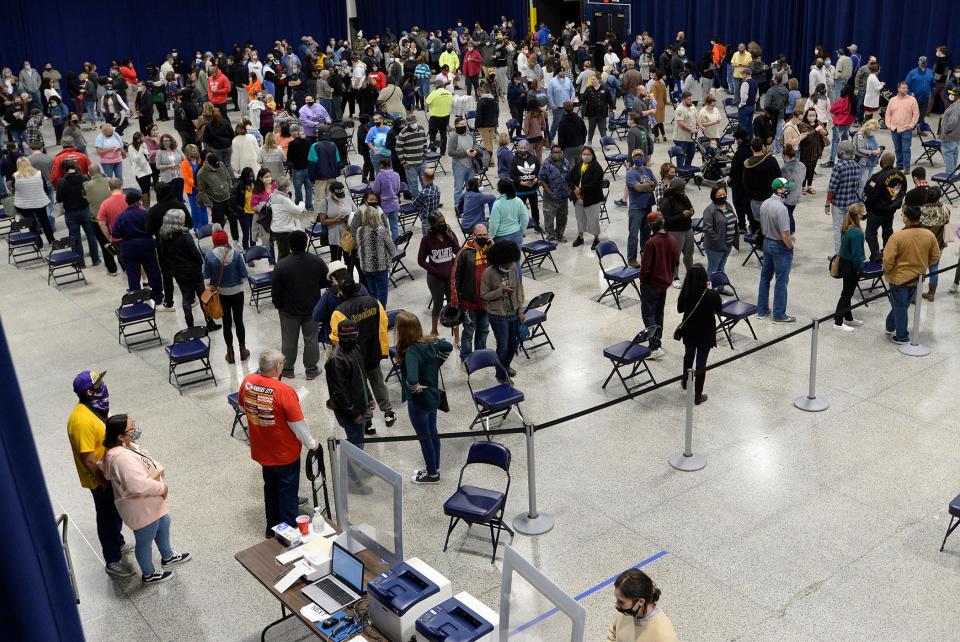
Another improvement, according to Harvey, would be to add more early voting sites..
"We have only one early voting location in Spartanburg County and the same goes for Greenville," Harvey said. "The county is expansive and covers a lot of territory. The expectation that folks are going to drive to downtown Spartanburg or can even facilitate transportation in a two-week period seems unlikely and unfair."
Contact Bob Montgomery at bob.montgomery@shj.com. Please support our coverage of Spartanburg County with a digital subscription.
This article originally appeared on Herald-Journal: South Carolina early voting law applauded by Democrats, Republicans

